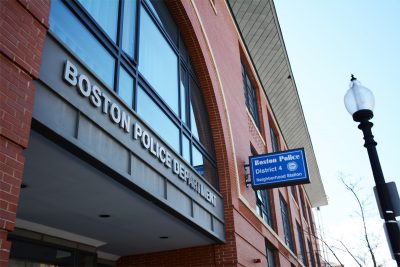
Boston Mayor Martin Walsh and Police Commissioner William Gross announced Monday the establishment of a new bureau — the Bureau of Community Engagement — within the Boston Police Department.
The new bureau will be responsible for improving community police coverage in Boston neighborhoods, trust between residents and police officers and inclusivity in the department as a whole, according to a press release from Walsh’s office.
Walsh said in the release that Boston is already known for having “strong police-community relations” but can do more to improve.
“With this new bureau, we are doubling down on our efforts to connect with residents in their neighborhood and offer a hand of support,” Walsh said in the release.
Deputy Superintendent Nora Baston, a 22-year veteran of the BPD, will lead the new bureau. She will be tasked with strengthening relationships between law enforcement officers and the communities they serve, the release stated.
“There is no better person to lead this effort than Superintendent Nora Baston, who has shown throughout her career her commitment to the people of Boston,” Walsh said in the release.
Police departments nationwide have sought to implement community policing practices to ensure the safety of their officers and the general public. Boston has been recognized as a leader in this movement, having been acknowledged by the Obama Administration in 2015 for its dedication to improving community policing.
The Monday press conference addressed a number of projects that Baston already has planned for the new bureau. One prominent feature of her plan was the creation of a housing liaison as well as liaisons to assist LGBTQ and elderly citizens — two groups statistically more likely to be homeless a large city like Boston.
LGBTQ youth have a 120 percent higher risk to report being to be homeless than their straight peers, according to a November 2017 report from the Voices of Youth Count. Additionally, 31 percent of homeless Americans are over the age of 50, The New York Times reported in 2016.
Baston will also take charge of existing youth and safety programs, the release stated. Such programs include the teen police academy, Coffee with a Cop and Shop with a Cop, which aim to aid relations between officers and their communities.
